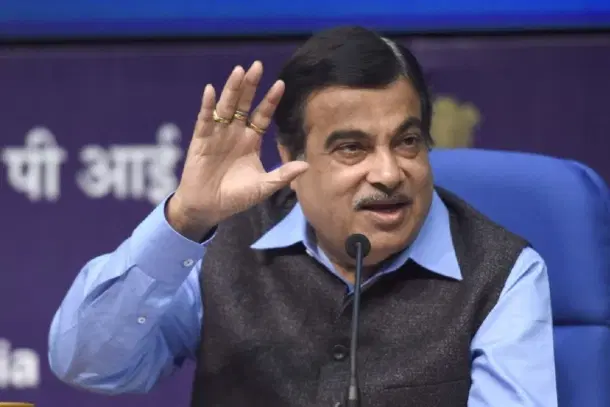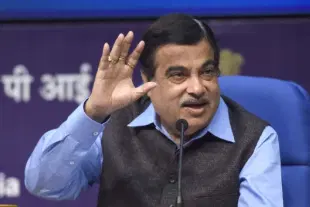News Brief
India's Highway Network Will Be Better Than US In Two Years: Nitin Gadkari
Swarajya Staff
Mar 26, 2025, 04:25 PM | Updated 04:24 PM IST
Save & read from anywhere!
Bookmark stories for easy access on any device or the Swarajya app.


India’s highways are set to outshine even those of the United States within the next two years, according to Union Minister for Road Transport and Highways Nitin Gadkari, reported India TV.
Speaking at an event on Tuesday (25 March), the minister expressed confidence in India's infrastructure transformation, citing major developments in highway construction, electric vehicle (EV) adoption, and logistics efficiency.
Highways to Match – and Surpass – US Standards
"Earlier, I used to say our highway road network would match that of the US, but now I say that within two years, our highway network will be even better than the United States," Gadkari was quoted as saying by India TV.
With ongoing expressway projects, the minister emphasised that travel time between major cities like Delhi, Dehradun, Jaipur, and Bengaluru will be significantly reduced.
He also set an ambitious target to construct 60 kilometers of highways every day, further reinforcing India’s position as a global infrastructure leader.
Gadkari also asserted that India will surpass the US in electric vehicle (EV) adoption and manufacturing within five years. He pointed to rapid improvements in charging infrastructure and declining costs of EV components as key drivers of growth.
The Vehicle Scrapping Policy, according to him, will lower auto component prices by 30 per cent, ultimately making electric vehicles more affordable for Indian consumers.
He highlighted that the falling prices of lithium-ion batteries—a critical component in EVs—will further boost demand.
A major breakthrough in India's EV ecosystem is the discovery of large lithium reserves in Jammu and Kashmir, which account for 6 per cent of the world’s total lithium reserves.
These reserves are expected to support large-scale battery manufacturing, making India self-sufficient in lithium-ion battery production.
A crucial aspect of the government’s infrastructure push is reducing logistics costs, which currently stand at 14-16 per cent of GDP.
Gadkari stated that the aim is to bring this figure down to single digits, making India more competitive in global trade.





